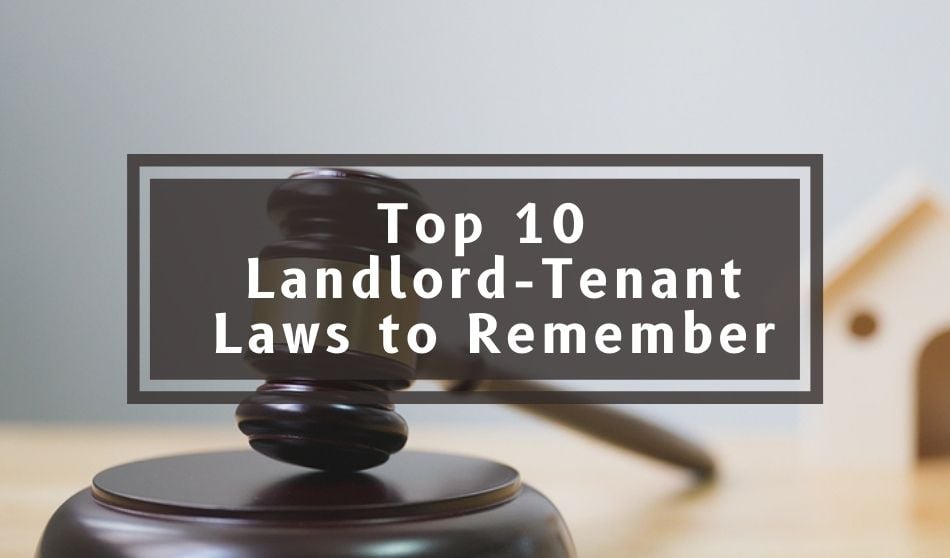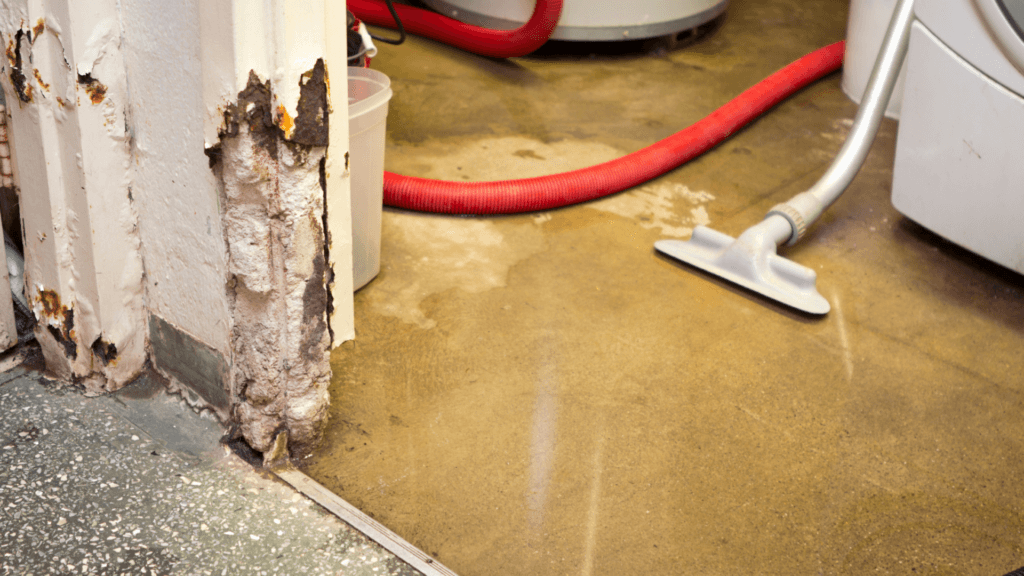Plumbing issues in a commercial property can disrupt business operations. But who is responsible for fixing them?
Understanding the responsibilities of a commercial tenant when it comes to plumbing repairs is crucial. This knowledge can prevent disputes and ensure smooth functioning of the property. In this blog, we will explore what is expected from an 8S commercial tenant regarding plumbing issues.
Whether you are a tenant or a property owner, knowing these responsibilities can save time, money, and stress. Let’s dive in to find out what you need to know about handling plumbing problems in your commercial space.

Credit: www.rentecdirect.com
Introduction To 8s Commercial Tenancy
The 8S Commercial Tenancy model offers a structured way for managing rental spaces. It emphasizes clear roles and responsibilities for tenants and landlords. This helps in maintaining the property efficiently. One key aspect is tenant responsibility for certain repairs, including plumbing.
Overview Of 8s Framework
The 8S Framework consists of eight pillars. These pillars guide the relationship between tenants and landlords. They cover areas like safety, security, and sustainability. Each pillar has specific guidelines. These guidelines ensure both parties know their roles.
For example, tenants are often responsible for minor repairs. This includes tasks like fixing leaks or unclogging drains. This arrangement helps keep the property in good condition. It also fosters a sense of ownership among tenants.
Importance For Commercial Tenants
Understanding the 8S Framework is crucial for commercial tenants. It helps them know what is expected. This knowledge can prevent misunderstandings. Clear responsibilities ensure smooth operations. When tenants know their duties, they can act quickly.
For instance, fixing a small plumbing issue immediately can save money. It prevents larger, more costly problems. This proactive approach is beneficial. It keeps the business running smoothly. Happy tenants mean a well-maintained property. This is a win-win for everyone.

Credit: www.tenantplanet.com
Plumbing Responsibilities
Understanding plumbing responsibilities is crucial for commercial tenants. Clear boundaries help maintain a smooth relationship between tenants and landlords. This section outlines the key plumbing duties for both parties and common plumbing issues they may face.
Tenant Vs Landlord Duties
Tenants typically handle minor plumbing issues. These include unclogging drains, fixing leaks, and maintaining fixtures. Regularly checking for leaks can prevent major problems. Landlords, on the other hand, handle major plumbing repairs. They address issues related to the building’s plumbing system. Landlords must ensure the plumbing system meets legal standards. This division helps maintain the property in good condition.
Common Plumbing Issues
Clogged drains are a frequent problem. They can cause water to back up and create unpleasant odors. Leaky faucets are another common issue. They waste water and increase utility bills. Running toilets can also be a problem. They waste a significant amount of water. Low water pressure may indicate a larger plumbing issue. Addressing these issues promptly prevents further damage.
Legal Obligations
Understanding legal obligations is crucial for commercial tenants. When it comes to plumbing, tenants need to know their responsibilities. This ensures smooth operations and prevents conflicts with landlords.
Lease Agreement Terms
Lease agreements spell out the responsibilities of tenants. They often include details about who handles plumbing repairs. Some leases make tenants responsible for any plumbing issues. Others might require landlords to take care of major repairs.
It’s vital to read and understand your lease terms. This helps avoid misunderstandings and ensures compliance with the agreement. Always keep a copy of the lease for reference.
Local Regulations
Local regulations also play a role in tenant responsibilities. Different areas have different laws regarding commercial properties. Some places may have strict codes for plumbing maintenance. These codes can affect how repairs are managed.
Knowing local laws helps tenants stay compliant. It also protects them from potential fines or legal issues. Always check with local authorities to understand your obligations.
Identifying Plumbing Problems
As a commercial tenant, dealing with plumbing issues might not be your favorite task. However, it’s essential to identify problems early. Recognizing the signs of plumbing issues can save you from costly repairs and keep your business running smoothly. Let’s dive into how you can spot these issues before they turn into major headaches.
Signs Of Plumbing Issues
Plumbing problems don’t usually scream for attention. They whisper. Here are some common signs to watch out for:
- Unusual Noises: If you hear gurgling, banging, or whistling sounds from your pipes, it’s a sign of trouble.
- Slow Drains: If sinks, toilets, or other drains are slow, it could indicate a clog.
- Water Stains: Check for stains on walls or ceilings. They might be a sign of leaking pipes.
- Low Water Pressure: If water pressure drops suddenly, it could be due to a leak or blockage.
- Unpleasant Odors: Bad smells from drains or around the property can indicate sewer problems.
Regular Inspections
Regular inspections are your best defense against plumbing problems. Here’s how to go about it:
- Monthly Checks: Every month, do a quick check of all visible pipes, faucets, and drains. Look for leaks, drips, and signs of wear.
- Quarterly Inspections: Every three months, inspect less accessible areas like basements or crawl spaces. Look for moisture or mold, which can indicate leaks.
- Annual Professional Inspection: Once a year, hire a professional plumber to do a thorough inspection. They can spot issues that you might miss.
Remember, a stitch in time saves nine. Regular inspections can prevent minor issues from becoming major disasters. Plus, it ensures that you’re meeting your responsibilities as a commercial tenant.
| Inspection Frequency | Actions |
|---|---|
| Monthly | Check visible pipes, faucets, and drains for leaks and wear. |
| Quarterly | Inspect basements or crawl spaces for moisture or mold. |
| Annually | Hire a professional plumber for a thorough inspection. |
In conclusion, by being proactive and attentive, you can effectively manage plumbing issues in your commercial space. So, keep an eye (and ear) out for those subtle signs and schedule regular inspections. Your plumbing system—and your peace of mind—will thank you!
Hiring Professional Services
When it comes to fixing plumbing issues in a commercial property, sometimes it’s best to call in the pros. Finding the right plumber can save you time, money, and a lot of headaches. Let’s dive into some key steps to ensure you hire the best professional services available.
Choosing A Qualified Plumber
First things first, you need to choose a plumber who knows their stuff. But how do you find one? Start by checking their certifications and licenses. A qualified plumber will have the proper training and credentials. Don’t be shy about asking for proof. It’s your right to know.
Additionally, look for reviews and testimonials. Other people’s experiences can tell you a lot. If a plumber has a lot of positive feedback, chances are, they’re good at what they do. And don’t forget to ask if they have experience with commercial properties. It’s a different ball game compared to residential plumbing.
Obtaining Multiple Quotes
It’s always a good idea to get multiple quotes before making a decision. Why? Because it helps you understand the going rate for the job. Plus, it gives you a chance to compare services and prices.
Here’s a simple way to do it:
- Contact at least three different plumbers.
- Explain the issue in detail.
- Request a written quote.
When you have the quotes, lay them out side by side. Look for differences in cost, scope of work, and warranties. Remember, the cheapest option isn’t always the best. Sometimes, spending a little more upfront can save you a lot in the long run.
Now, let’s put it all together with a quick example. Imagine you have a leaky pipe in your commercial kitchen. You’ve found three plumbers with good reviews and proper licenses. Plumber A offers to fix it for $200, Plumber B for $150, and Plumber C for $250 but includes a two-year warranty. Which one would you choose? Think about the value each one brings to the table.
In conclusion, hiring the right professional services for plumbing issues is crucial. By choosing a qualified plumber and obtaining multiple quotes, you can ensure you’re getting the best service for your money. Happy plumbing!
Diy Fixes
Plumbing issues can disrupt daily operations in commercial spaces. While it’s essential to call in professionals for major problems, some minor issues can be tackled by tenants themselves. DIY fixes can save time and money. Plus, they ensure the smooth running of the business.
Simple Repairs
Some plumbing issues are straightforward. A dripping faucet, for instance, often requires a simple washer replacement. Clogged drains can usually be cleared with a plunger or a drain snake. Addressing these minor issues promptly prevents them from escalating into bigger problems.
Tools And Materials
Having the right tools is crucial for DIY plumbing fixes. Basic tools include a wrench, plunger, and drain snake. You might also need a set of screwdrivers and a utility knife. For materials, keep washers, plumber’s tape, and pipe sealant on hand. These items will cover most minor repairs.
Cost Management
Managing costs is crucial for commercial tenants, especially when it comes to plumbing repairs. Unexpected plumbing issues can create financial strain, but with good planning, you can keep expenses under control. Let’s dive into how you can manage costs effectively.
Budgeting For Repairs
Creating a budget for plumbing repairs is like setting up a safety net. It’s important to allocate funds specifically for potential plumbing issues. Here’s a simple guide:
- Estimate Costs: Look at past plumbing repairs to get an idea of potential expenses.
- Set Aside Funds: Regularly save a portion of your income for future repairs.
- Track Spending: Keep a record of all plumbing-related expenses to stay within your budget.
By budgeting effectively, you can avoid the financial stress that comes with sudden plumbing problems. Remember, a well-planned budget is your best defense against unexpected costs.
Preventative Maintenance
Prevention is better than cure, and this holds true for plumbing too. Regular maintenance can prevent major issues from arising. Here’s how you can practice preventative maintenance:
- Regular Inspections: Schedule routine checks to identify potential problems early.
- Fix Minor Issues: Address small leaks or clogs immediately to prevent bigger problems.
- Educate Staff: Train employees on proper plumbing usage to avoid unnecessary damage.
Implementing these steps can save you from costly repairs in the long run. Think of it as giving your plumbing system a regular health check-up.
Managing plumbing costs might seem daunting, but with the right approach, it’s entirely doable. Budget wisely and maintain your plumbing system regularly. This way, you can keep your finances and your plumbing in top shape!
Communicating With Landlords
When you’re a commercial tenant, understanding your responsibilities, especially regarding plumbing, is crucial. One key aspect of managing these responsibilities is effective communication with your landlord. Clear and consistent communication can prevent minor issues from becoming significant problems and ensure a smooth tenancy experience.
Reporting Issues
One of the first steps in dealing with plumbing issues is reporting them promptly to your landlord. Here’s how you can do it effectively:
- Document the Problem: Take notes and photos. This helps to clearly explain the issue.
- Contact Information: Make sure you have the correct contact details for your landlord or property manager.
- Be Specific: Describe the problem in detail. For instance, instead of saying, “The sink is broken,” explain that “The kitchen sink is leaking from the faucet and causing water damage to the cabinet below.”
- Follow Up: If you don’t receive a response within a reasonable time, follow up with another message or a phone call.
Negotiating Responsibilities
Sometimes, it’s not clear who is responsible for fixing certain issues. Negotiating responsibilities with your landlord can help avoid misunderstandings. Here’s a simple guide to navigate this:
- Review Your Lease: Start by reading your lease agreement. It often outlines who is responsible for what.
- Discuss Upfront: Before moving in, have a conversation with your landlord about maintenance responsibilities. This can save a lot of trouble later.
- Compromise: If an issue arises and it’s not clearly stated in the lease, be ready to negotiate. You might agree to share the costs or handle minor fixes while the landlord takes care of major repairs.
- Put it in Writing: Any agreements or changes to the responsibilities should be documented in writing. This helps avoid disputes later on.
By effectively communicating with your landlord, you can ensure that plumbing issues are handled promptly and fairly, maintaining a positive relationship and a well-maintained property.
Case Studies
In the realm of commercial tenancy, plumbing issues can be a common challenge. Some tenants take the responsibility to fix these problems themselves. Let’s explore case studies where tenants successfully handled plumbing repairs and the lessons they learned.
Successful Tenant Repairs
A tenant in a busy shopping mall faced frequent plumbing issues. The tenant decided to fix the plumbing problems on their own. They hired a professional plumber and oversaw the repairs. This proactive approach minimized business disruptions. Sales improved as customer satisfaction increased.
Another tenant in an office building took a similar route. They fixed a persistent leak in the restroom. By addressing the issue quickly, they avoided water damage. This saved them from costly repairs down the line. Their quick action also maintained a pleasant environment for employees.
Lessons Learned
From these case studies, we learn that quick action is crucial. Addressing plumbing issues early can prevent larger problems. Tenants who handle repairs promptly save money and time. They also maintain a safe and functional space for their customers or employees.
Another important lesson is the value of professional help. Hiring skilled plumbers ensures the job is done right. It reduces the risk of recurring issues. Tenants who invest in quality repairs enjoy long-term benefits. Their spaces remain in good condition and business operations run smoothly.

Credit: www.raiznerlaw.com
Frequently Asked Questions
Do Tenants Have To Pay For Plumbing Repairs?
Tenants usually pay for plumbing repairs caused by their negligence or misuse. Landlords typically cover the costs for normal wear and tear. Check your lease agreement for specific details.
Who Is Responsible For Water Damage From A Commercial Building?
The property owner is usually responsible for water damage from a commercial building. Lease agreements may specify tenant responsibilities.
What Repairs Are Commercial Landlords Responsible For In California?
Commercial landlords in California must repair structural aspects, plumbing, electrical systems, and ensure compliance with health and safety codes.
Does A Commercial Landlord Have To Provide A Toilet?
Yes, a commercial landlord must provide a toilet for tenants and their employees, according to health and safety regulations.
Conclusion
Tenants need to handle plumbing issues promptly. Ignoring them can cause bigger problems. Always check your lease agreement. It might specify your responsibilities. Communicate with your landlord. They might offer guidance or help. Regular maintenance can prevent issues. Hire professional plumbers for serious repairs.
This ensures proper fixes. Remember, taking care of plumbing keeps your space safe. It also avoids costly damage. So, stay proactive and maintain your property well.

